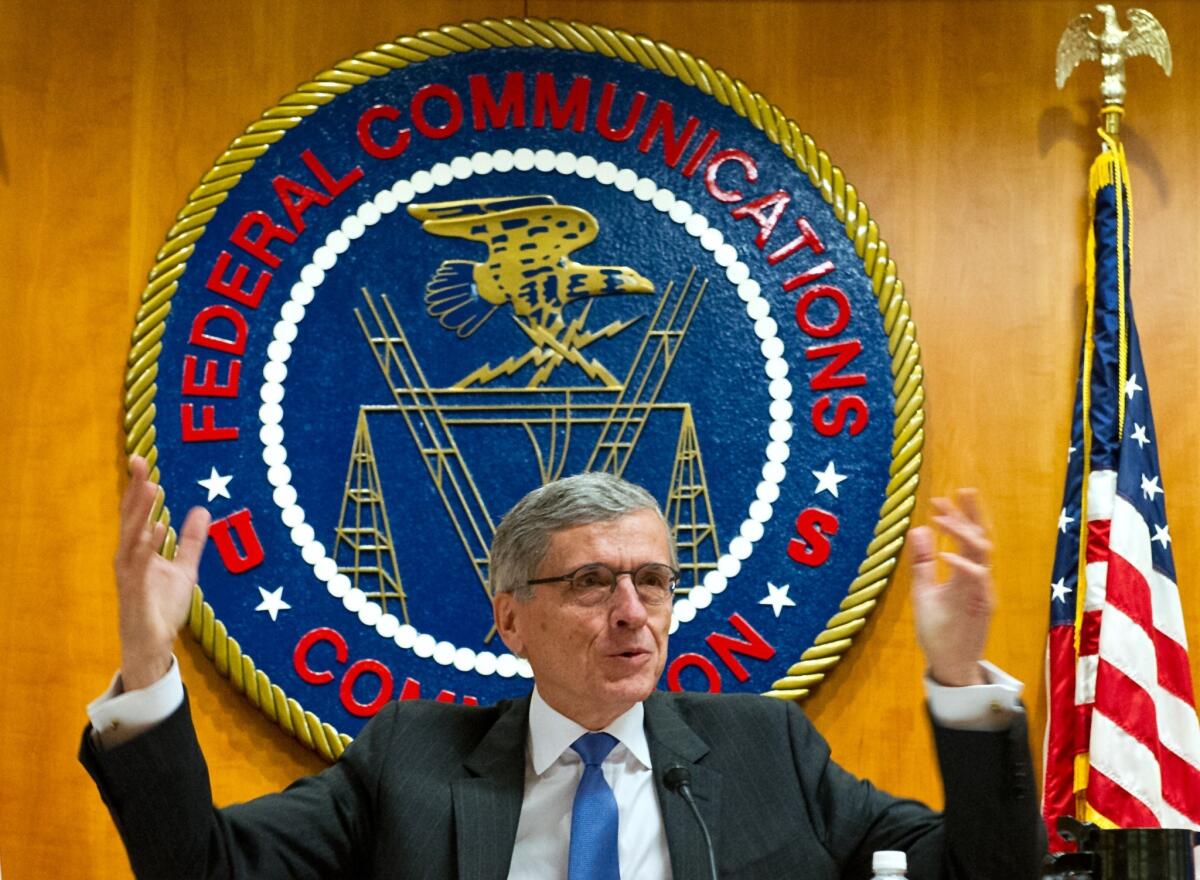Editorial: The FCC’s new rules for a free and open Internet

- Share via
Since the Federal Communications Commission set out to preserve the free and open nature of the Internet more than a decade ago, there’s never been a question about the importance of that goal. Instead, the often bitter debate has been over how to achieve it. The latest proposal from FCC Chairman Tom Wheeler — to impose the strictest rules yet on Internet service providers, including mobile networks — will almost certainly draw a challenges in the courts and from Republicans in Congress. But Wheeler and his allies make a persuasive case that the more permissive approach favored by Comcast, AT&T and other ISPs won’t protect consumers and competition in the long run.
At issue is whether ISPs can strike deals with websites and services that give them a competitive advantage in the “last mile” to consumers. After a federal appeals court tossed out most of the net neutrality rules the FCC adopted in 2010, Wheeler proposed to let ISPs strike deals only if they were “commercially reasonable.” But he gradually came around to the position taken by millions of Internet users, numerous Web-based companies and President Obama, namely, that ISPs should be reclassified as “telecommunications services,” like phone lines, and flatly prohibited from blocking sites, slowing down data or prioritizing traffic for a fee. His proposal would also give the FCC power to act on complaints about other types of ISP interference, including from companies such as Netflix that connect directly to ISPs’ networks.
Broadband providers have supported bans on blocking, throttling and paid prioritization, but they strenuously oppose being reclassified and subjected to the encyclopedic rules of Title II of the Communications Act. Such a shift would cause investors to flee, which would stymie the deployment of more advanced and ubiquitous high-speed networks, they argue. Ideally, Congress would give the FCC new authority to write rules tailored to net neutrality. Instead, however, leading Republicans in the House and Senate want to place a few basic restrictions on ISPs and forbid the FCC to go further. Until lawmakers come up with something realistic, Wheeler is pursuing the best approach available, which is to apply Title II to ISPs while exempting them from onerous and irrelevant provisions.
Before it votes on the new rules this month, the FCC needs to do as much as it can to whittle down Title II and clarify what ISPs would be barred from doing. Wheeler is properly focused on waiving the parts of Title II that would be most harmful to investment, including price controls, taxes and network-sharing mandates. Just as important, though, is making sure ISPs don’t have the power to stifle investment by everyone else online. That’s why the FCC should keep pushing for enforceable, effective net neutrality rules.
Follow the Opinion section on Twitter @latimesopinion and Facebook
More to Read
A cure for the common opinion
Get thought-provoking perspectives with our weekly newsletter.
You may occasionally receive promotional content from the Los Angeles Times.









